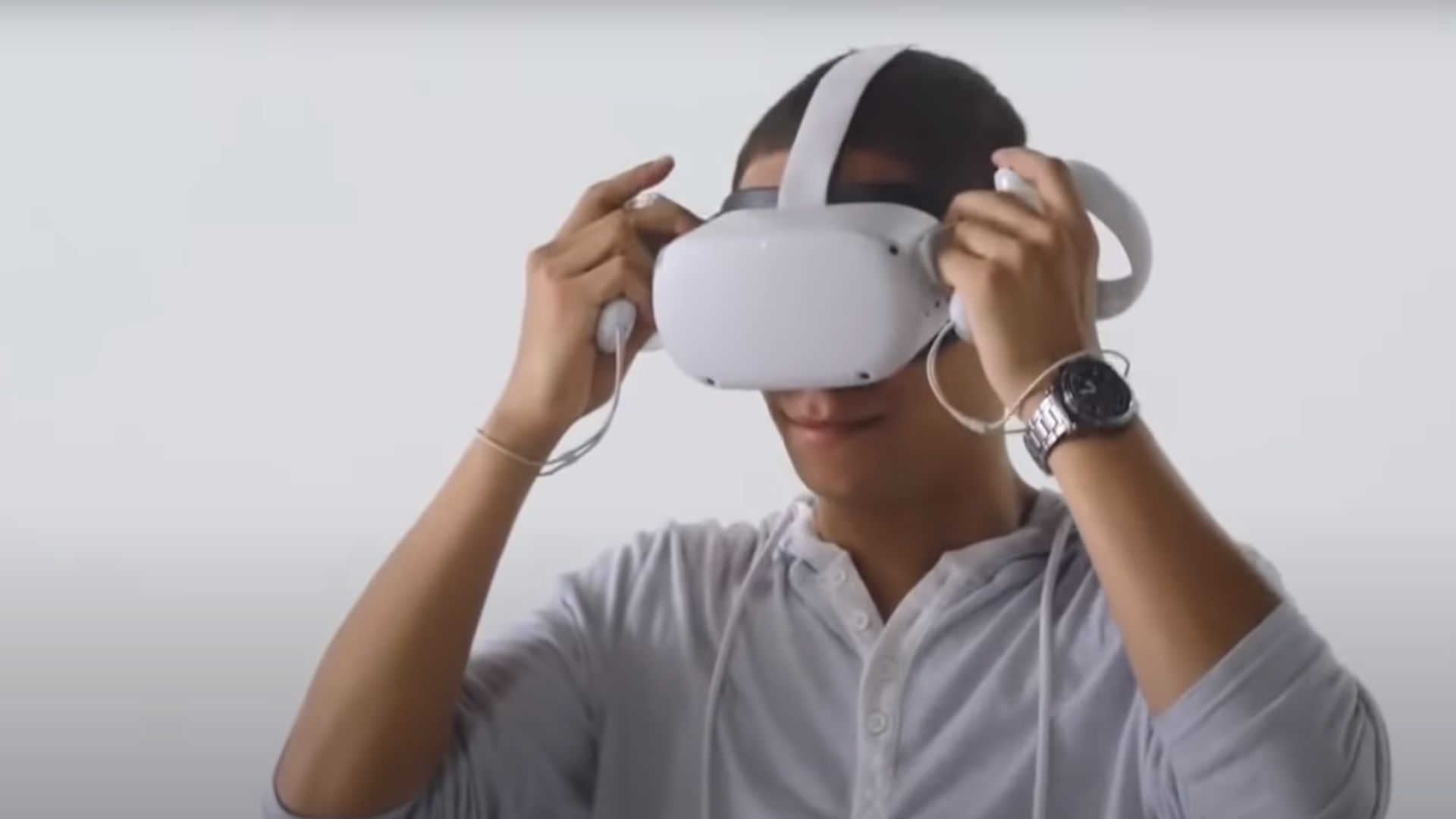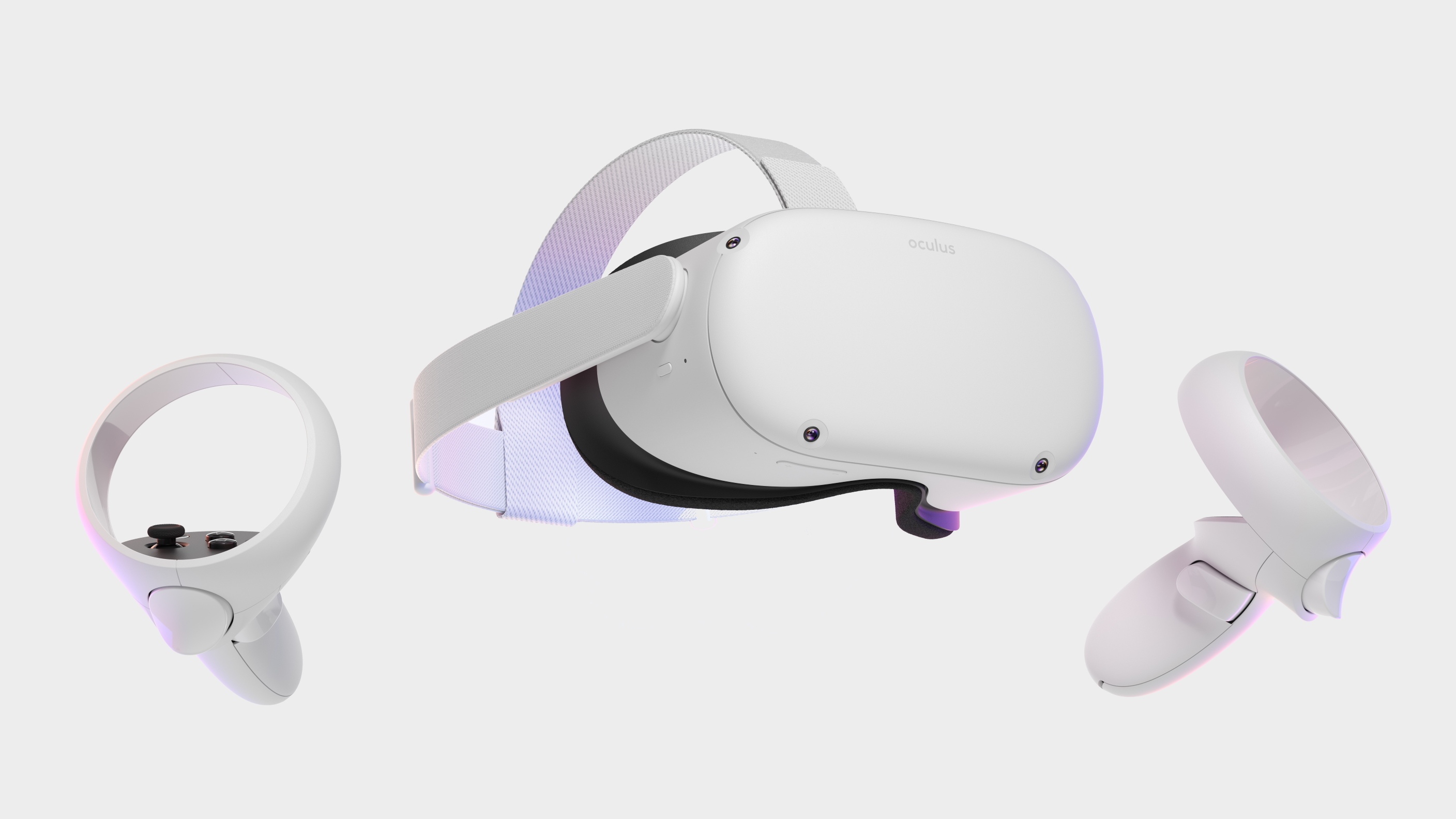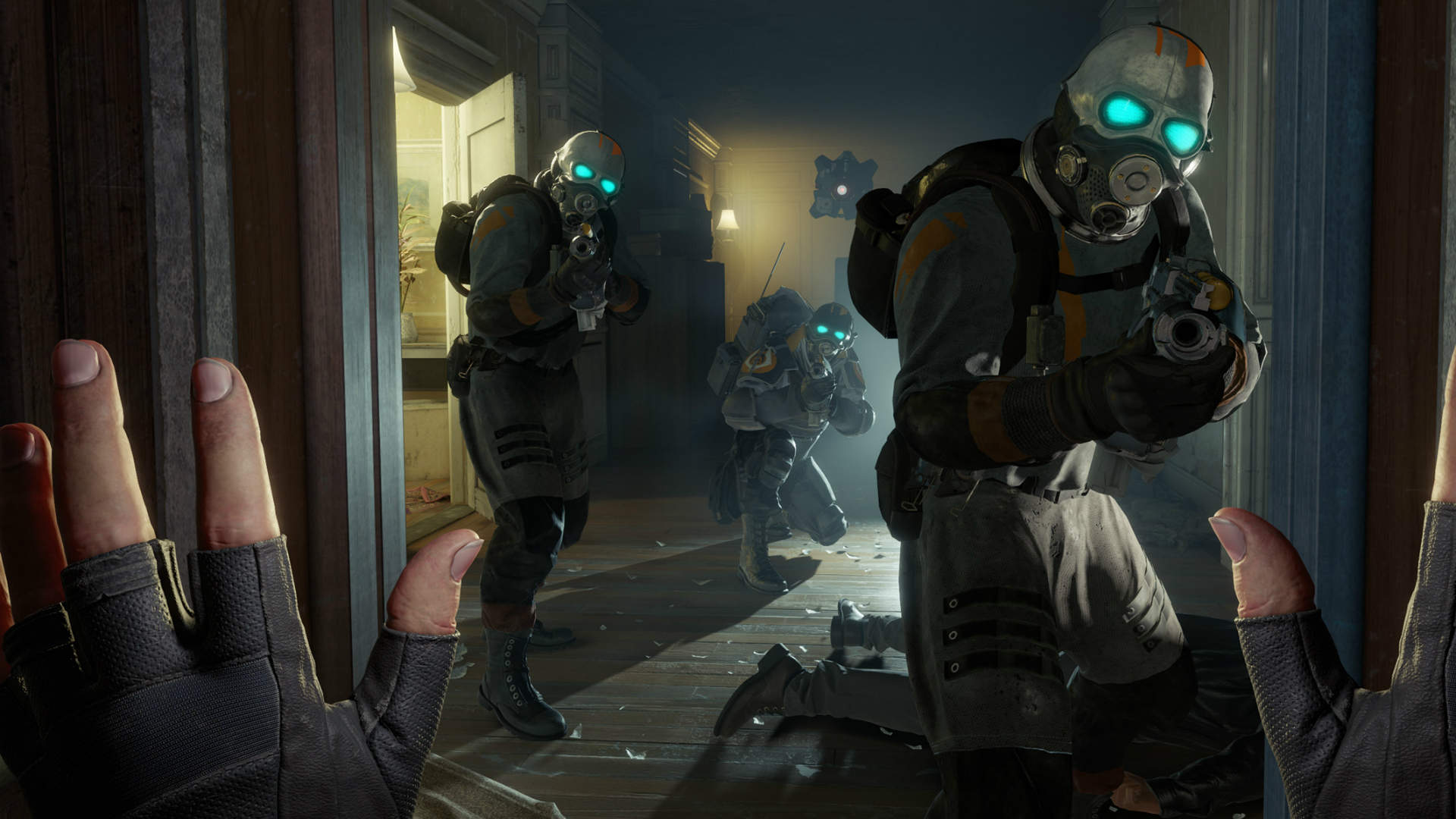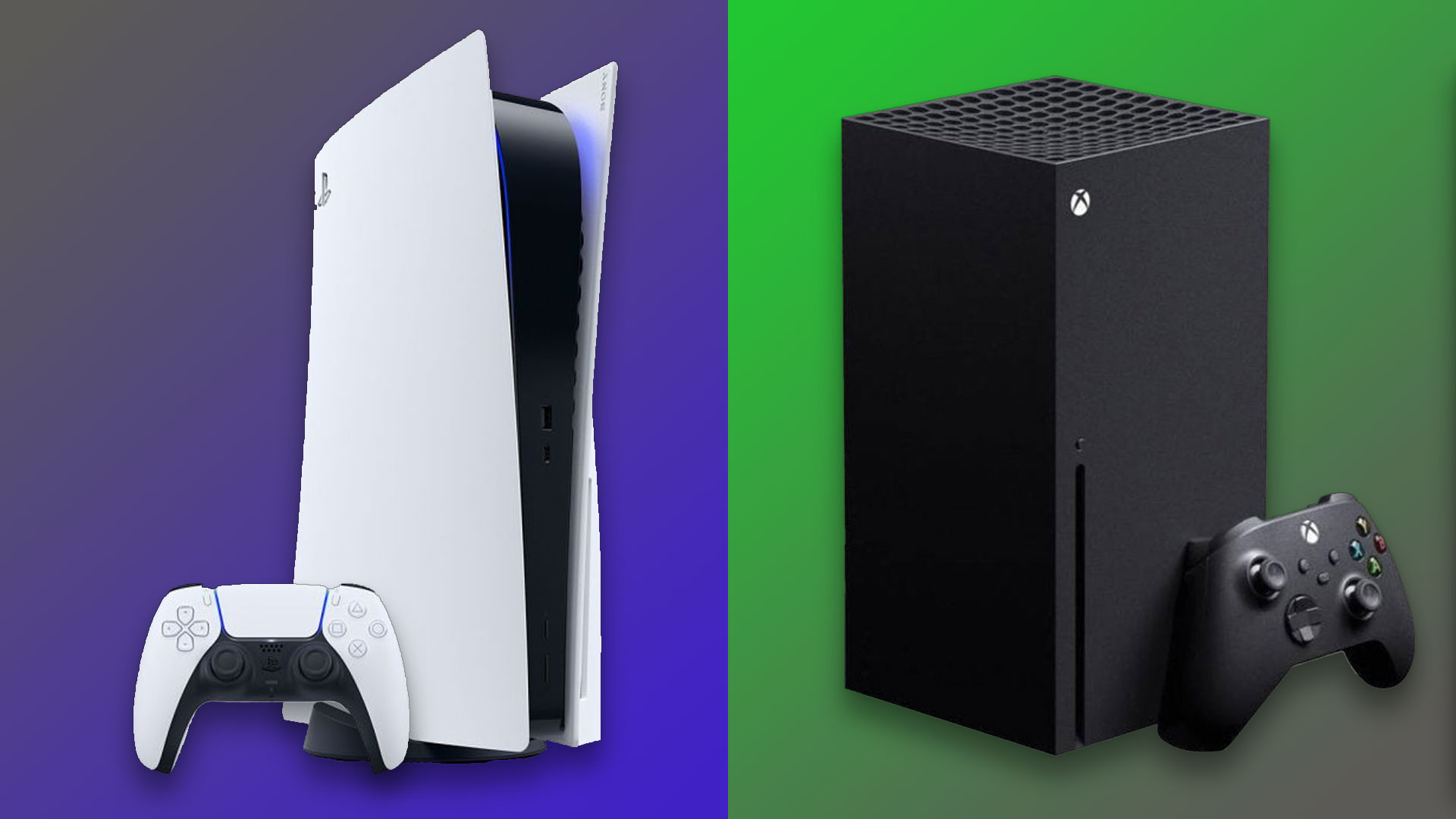Oculus Quest 2 interview: "This is win-win for everybody who is in VR"
Competing with consoles, 'Zuckerberg's vision' and more discussed with Oculus' VR product manager.

With the reveal of Oculus Quest 2, cordless virtual reality takes another step forward with a more powerful discrete headset, better visuals, and more accurate controllers. But as Oculus owner Facebook tries to consolidate its VR presence, shifting focus away from PC VR platforms such as Rift S, what does that mean for the future of the format?
Matt Kamen speaks with Prabhu Parthasarathy, VR product manager at Oculus, and Chris Jurney, AR/VR head of developer strategy, to discuss the new Quest 2 hardware, how VR can compete with PS5 and Xbox Series X, and how players can expect VR games to diversify as more developers come on board.
Oculus Quest 2 - Your next VR headset?

Matt Kamen: One of the hardware points for Quest 2 that hasn't been touched on greatly is the outward-facing movement sensor cameras. Have they been improved compared to the original Quest?
Prabhu Parthasarathy: The cameras are mostly the same [but] we've made a bunch of leaps in the vision algorithms. As people spend more time playing games, as developers incorporate new poses and new movements into VR, the algorithms are just continuing to learn and get better. That's where you will see a lot of improvements coming in the future.
MK: A small hardware change is on the controllers, with the mechanical clasp replacing the magnetic door on the battery cover. Is this simply a cost-saving measure?
PP: This is a great question - you're the first one to ask! No, actually it's not. The thing that we've been trying to do is learn from both products that we've shipped and then just find better solutions. When we launched Quest last year, our hardcore Beat Saber users, our hardcore fitness enthusiasts, they were saying that in intense sessions, based on how tight they were gripping the controllers, the battery door would start opening. We definitely don't want that, so it was actually that which prompted us to move away from a magnetic door to something that feels more mechanically rigid.
MK: The new fixed positions for the Quest 2's lenses are said to accommodate between the fifth and 95th percentile of users. Will the announced Fit Pack or any other accessory adapt the fit for anyone in the outliers?
Weekly digests, tales from the communities you love, and more
PP: So, IPD (inter-pupillary distance) is measured in millimeters. The way we designed it is setting #1 is baselined at 58mm, #2 is at 63mm, and #3 is at 68mm. If you take this spectrum of 58mm to 68mm, we think this covers between the fifth to the 95th percentile. Now what we've seen, anecdotally, in our internal experiences is people who are at 56-57mm are relatively comfortable at setting #1, people who are at 69-70mm are comfortable at #3. It's kind of hard to quantify because there are also people who are at 71mm and 72mm, and there's no good ethnographic studies that tell you how many people have an IPD beyond 70mm. We just kind of baseline it with what we know and we think we should be able to cover this. I don't believe with this product you can find a fit for people who are at, say, 72mm.
MK: So there are some people who are just going to be unfortunate enough that they're not going to be able to get a fit?
PP: Yes, yeah.
MK: Do you see that as being something that's correctable or further modifiable with future iterations of the Quest?
PP: We will definitely look at it. Bringing more people into the VR umbrella is super important for us. This is something we take super seriously, so yes, future iterations, we will definitely evaluate how we can broaden this.

MK: With the expansion of Oculus Link, you're winding down focus on Quest 1 and Rift S - how long are you expecting to support those existing devices?
PP: There are two pieces to this – from a platform standpoint, we will continue to support them for a while to come. Both platforms are important. The [original] Quest naturally gets a lot of support because the Quest and Quest 2 are the same platform – as we build more things on Quest 2, a majority, if not most of it, will come to the Quest also. [With Rift S] there's a slightly nuanced take on how we see PC VR. PC VR is interesting because it is doing well right now – it's got a very stable platform. We will continue to ship titles and be supported for a while to come.
MK: How do you see Quest 2 stacking up against 'higher end' competitors such as Valve Index?
PP: The way we've thought about this is, we want to try to find the sweet spot between building a great experience and finding a mechanism to make VR more accessible. I mean, it's great if we continue to build niche devices, but [then VR] will continue to stay niche and never become mainstream. Mark [Zuckerberg]'s vision is to take this to as many people as possible, and the only way we can do it is by building more accessible devices, where you don't need a PC and you just go to the living room and put this on. That's one way of building a more accessible device – you build so everybody can find one that works for them, at a price that actually people can afford. You don't want to abandon the kinds of experiences that you get out of a Valve Index though, which is why with Oculus Link, you can still play Half-Life Alyx, for example. We are trying to find a way where we can satisfy as many people as possible.
MK: The reality of the market at the moment is that VR is still a niche category. With anything in the tech sector, early adopters are typically what you might charitably call hardcore. Are you prepared for any backlash that you're "not supporting hardcore VR gamers" by moving focus from Rift S?
I am super optimistic this is win-win for everybody who is in VR
PP: Totally. We think the product will speak for itself. Yes, there will be some people who are quite unhappy with the direction we are taking [but] this is common across every platform, every consumer electronics device ever built. And that's natural right – they hold something very near and dear to them and they are the ones who made VR a thing. We acknowledge that they are passionate and we try to do our best to meet their needs. But we're not moving away from them as much as we are saying, 'hey, in addition to you, we think there is space for a lot more people under this umbrella.' That's been our approach. So, hopefully, once the initial wave of disappointment passes over, they realize this means there'll be more games to play in VR, because developers can now build bigger experiences because there are more people who buy their titles. I am super optimistic this is win-win for everybody who is in VR.
Chris Jurney: Yeah, and from a content perspective, the strategy remains squarely focused on gaming. We're investing massive amounts of money, we've got an army of developers building content for this headset. While it doesn't necessarily stack up with the peak stats of every fully connected, highly expensive PC VR headset, from a content perspective, it's pretty phenomenal for a gamer. To be able to have that all in one place where you can take it with you and share it, I think it's a pretty strong pitch for anyone that's looking for a VR game.

MK: Quest 2 is launching close to, if not directly alongside, the next generation of PlayStation and Xbox. Where do you see yourselves against traditional gaming at this point?
...we're not competing with PlayStation
PP: My personal take is we're not competing with PlayStation, we're not competing with Xbox. We sit next to each other, both on retailer shelves. I enjoy my PlayStation quite a bit, but I'm also somebody who spends time in VR every day. The idea is these are two distinct experiences. What you get in VR is total immersion. You are literally in the action. In a more 2D surface, you're watching the action [with a] controller in your hands. These are two distinct experiences and there's space for both, is how I approach this.
CJ: Yeah, I think that's fair. Obviously, they're all gaming devices but I'm not sure that anyone is predicting the imminent disappearance of PC or console gaming. This is a new medium, and I think it's largely additive. The games that you can experience in a Quest 2 are significantly different than the types of games that you experience on other platforms, either directly related on PC VR or PlayStation VR, or the majority of the experiences you're going to see on those console launches. They're definitely not the same scale in aggregate – the total size of the content market on a console launch is definitely larger than what you see in VR today but VR is growing, and it's headed in the direction of catching up. We've got a large volume of content available to buyers of the Quest 2 today, and we continue to make massive investments in content over time. The success of the devices so far has bred a multiplying effect of investment from developers and third parties. I think it's an exciting device today and we're going to get more exciting over time.
MK: Do you have any fear that Quest 2's launch is potentially going to get overshadowed by the new hardware launches?
PP: I think VR will have its own audiences, and we are in this for the long haul. One of the things we noticed earlier this year was Switch was selling gangbusters but we were selling gangbusters too. The idea is, there were enough people to buy both the Switch and the Quest, because they were looking for different things, and that's how we believe it will continue to be.
MK: Chris, it's been announced that Oculus is looking to work with more Japanese game developers. Do you see some of the hallmarks of Japanese games – long JRPGs such as Final Fantasy or Dragon Quest in particular – being adaptable to a VR experience?
CJ: Definitely, yes. There's a few things we see in VR content that speak in that direction – the pattern we see is that for high quality, highly engaging experiences that people love, [VR play] session times are no problem. The devices historically have not necessarily been super comfortable to wear for hours on end but we have some experiences where the average play-time can be over two hours a day. That's because the engagement and the enjoyment of the experience make it so that you don't notice the device. We think the Quest 2 is going to improve that comfort and help deepen that [immersion]. I don't think you're necessarily going to see direct ports of those [JRPG] experiences, because you don't necessarily want to look at menus when you're in VR. A lot of the JRPG experience, some of those deeper experiences, are indirect or abstract.
I think VR will have its own audiences, and we are in this for the long haul
MK: So how do you see those sorts of games coming to VR?
CJ: One of the common patterns in VR content is that the best [games] put you inside the experience and make you directly engage with the world. I think the themes of those experiences, the aesthetics – the feeling you get from being on an adventure, or experiencing horror, that are famous from Japanese developers – I think that will carry very well into VR. We've learned a lot about best practices over the past five or six years of the current era of consumer VR, so we know a lot about what works, but not every genre has come over because of the depth required, especially in the genres you mentioned like RPGs. There's a minimum content volume required for an RPG, but I think we're headed in that direction, absolutely. The main thing that's going to unlock that is the growth of the ecosystem and I think this headset is a big step in the direction of getting the mass adoption required to land that type of experience on a VR platform.
If you'd like to learn more about the new VR headset, be sure to check out our full Oculus Quest 2 review. Or, for discounts on the headset itself, take a look at the best Oculus Quest 2 deals available now.
Matt Kamen is a freelance journalist specialising in games, media, and technology. His work can be found online and in print for publications like Empire, Wired, GamesRadar, Newsarama, The Observer, and more.


